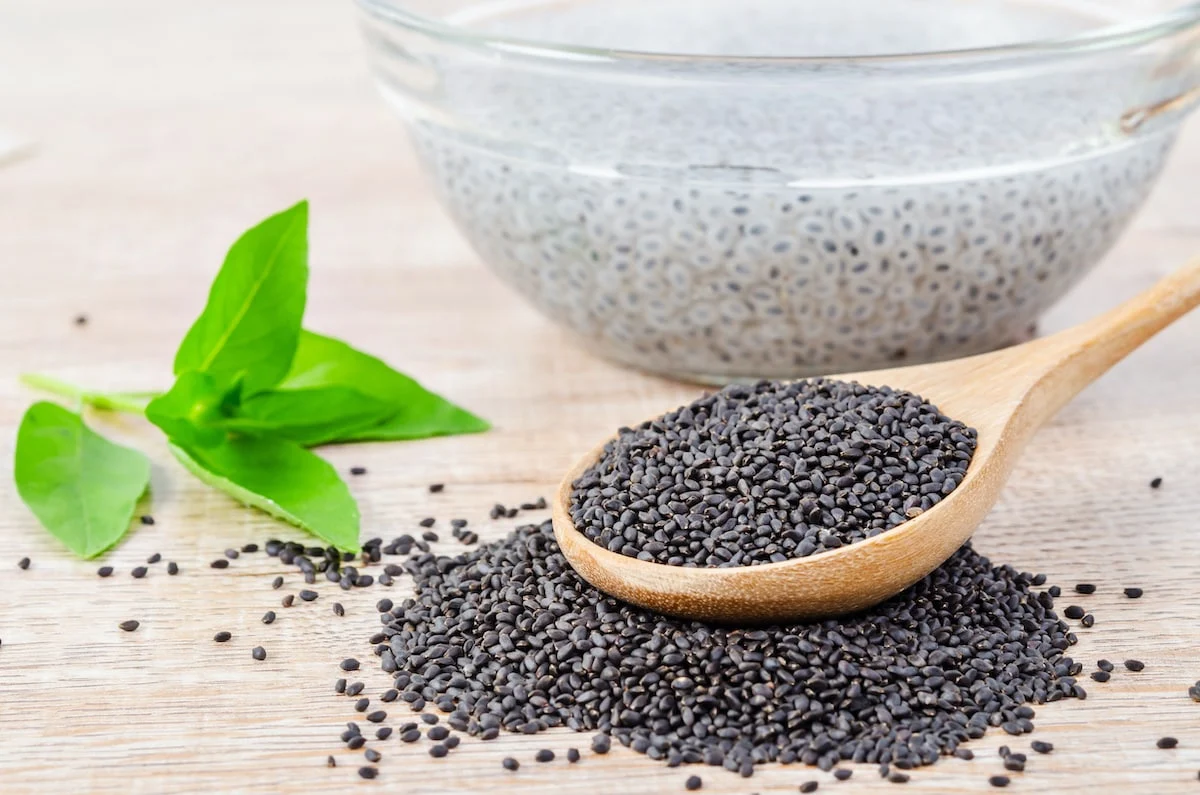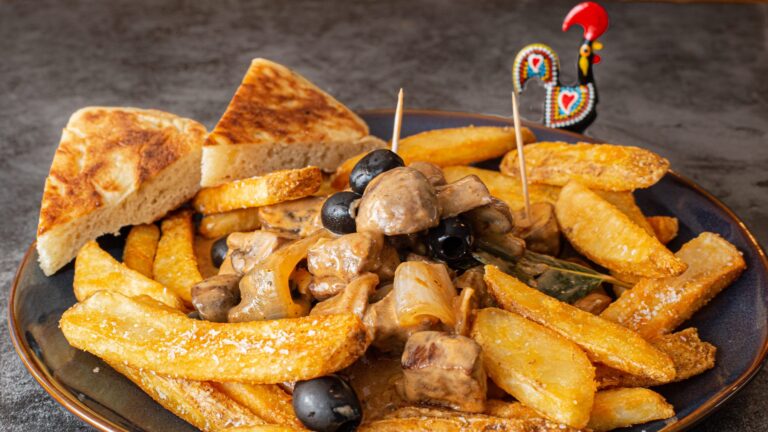The Incredible Health Benefits of Basil Seeds
Introduction
Basil seeds, also known as Sabja seeds or Tukmaria, are tiny black seeds derived from the sweet basil plant (Ocimum basilicum). While basil leaves are widely used in cooking, the seeds have gained popularity in recent years due to their impressive nutritional profile and health benefits. Often compared to chia seeds, basil seeds are packed with fiber, antioxidants, and essential minerals, making them a superfood with numerous advantages for digestion, weight management, and overall wellness.
In this article, we will explore the nutritional value of basil-seeds, their health benefits, potential side effects, and how to incorporate them into your diet.
Nutritional Profile of Basil Seeds
Basil-seeds are low in calories but rich in vital nutrients. A 100-gram serving provides approximately:
- Calories: 21 kcal
- Protein: 4 g
- Fats: 13 g (mostly healthy omega-3 fatty acids)
- Fiber: 7 g
- Calcium: 177 mg (17% of the Daily Value)
- Iron: 3.17 mg (18% of the DV)
- Magnesium: 43 mg (11% of the DV)
- Potassium: 34 mg
Additionally, basil seeds contain antioxidants like flavonoids and polyphenols, which help combat oxidative stress and inflammation in the body.
Health Benefits of Basil Seeds
1. Aids Digestion and Relieves Constipation
Basil seeds are an excellent source of soluble fiber, which absorbs water and forms a gel-like substance in the stomach. This helps:
- Promote bowel movements
- Prevent constipation
- Support gut health by acting as a prebiotic (feeding beneficial gut bacteria)
Soaking 1-2 teaspoons of basil-seeds in water and consuming them before meals can improve digestion.
2. Supports Weight Loss
Due to their high fiber content, basil seeds can help with weight management by:
- Increasing satiety and reducing hunger cravings
- Slowing down digestion, which keeps you full for longer
- Reducing calorie intake naturally
3. Regulates Blood Sugar Levels
Studies suggest that basil seeds may help stabilize blood sugar by:
- Slowing carbohydrate absorption
- Improving insulin sensitivity
- Reducing post-meal blood sugar spikes
Diabetics can benefit from consuming soaked basil seeds in moderation.
4. Promotes Heart Health
The omega-3 fatty acids, fiber, and antioxidants in basil-seeds contribute to cardiovascular health by:
- Lowering bad cholesterol (LDL)
- Reducing inflammation in blood vessels
- Supporting healthy blood pressure levels
5. Boosts Immunity and Fights Inflammation
Basil seeds contain antioxidants like flavonoids and polyphenols that:
- Strengthen the immune system
- Reduce oxidative stress
- Help fight chronic inflammation
6. Natural Cooling Agent for the Body
In traditional Ayurvedic and Unani medicine, basil seeds are used to cool the body. They are often added to:
- Sherbets (like falooda)
- Lemon water
- Coconut water
This makes them particularly beneficial in hot climates to prevent heatstroke.
7. Improves Skin and Hair Health
The anti-inflammatory and antioxidant properties of basil-seeds help:
- Reduce acne and skin irritation
- Promote collagen production for youthful skin
- Strengthen hair and prevent breakage
Applying a paste of soaked basil seeds with aloe vera or honey can improve skin texture.
8. Relieves Stress and Anxiety
Basil seeds contain adaptogenic properties that may help:
- Reduce cortisol (stress hormone) levels
- Improve mood and relaxation
- Enhance mental clarity
9. Good for Bone Health
With a decent amount of calcium, magnesium, and phosphorus, basil-seeds support:
- Stronger bones
- Prevention of osteoporosis
- Better joint health
10. Helps Detoxify the Body
The fiber in basil seeds helps flush out toxins from the digestive tract, supporting liver and kidney function.
How to Use Basil Seeds in Your Diet
Basil seeds need to be soaked before consumption, as they expand and form a gelatinous coating. Here are some easy ways to include them in your meals:
1. Basil Seed Water (Sabja Water)
- Soak 1 tsp basil-seeds in 1 cup of water for 10-15 minutes.
- Add lemon juice, honey, or a pinch of salt.
- Drink before meals for digestion and weight loss.
2. Basil Seed Pudding
- Mix soaked basil seeds with coconut milk, chia seeds, and honey.
- Refrigerate for 2 hours for a healthy dessert.
3. Smoothies and Juices
- Blend soaked basil seeds into fruit smoothies for extra fiber.
4. Falooda (Traditional Dessert Drink)
- Combine soaked basil seeds with rose syrup, milk, and vermicelli for a refreshing treat.
5. Yogurt or Oatmeal Topping
- Sprinkle soaked basil-seeds over yogurt or oatmeal for added texture and nutrients.
Potential Side Effects and Precautions
While basil-seeds are generally safe, excessive consumption may lead to:
- Choking hazard (if consumed dry, as they expand in the throat)
- Digestive discomfort (if taken in large amounts)
- Lower blood sugar levels too much (diabetics should monitor intake)
- Allergic reactions (rare, but possible in sensitive individuals)
Recommended Dosage: 1-2 teaspoons per day, soaked in water.
Conclusion
Basil seeds are a powerhouse of nutrients with benefits ranging from improved digestion to better heart health. Their versatility makes them easy to incorporate into various dishes, from drinks to desserts. However, moderation is key to avoiding potential side effects.
If you’re looking for a natural way to boost your health, consider adding basil-seeds to your diet. Their impressive nutritional profile and wide-ranging benefits make them a worthy addition to any wellness routine.







